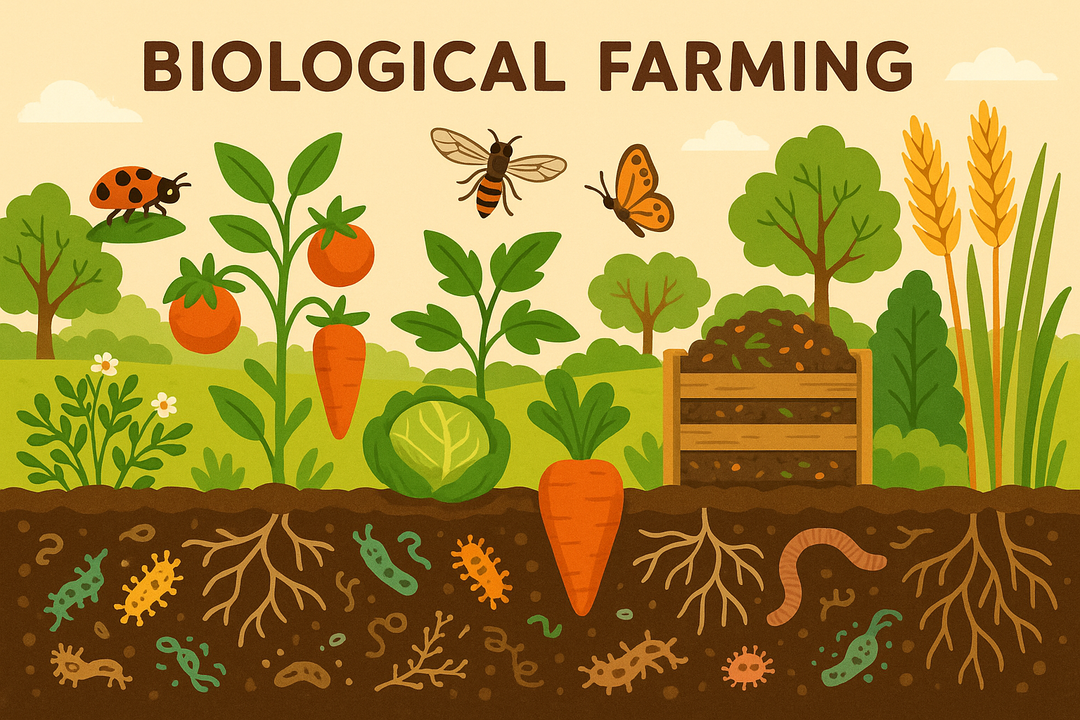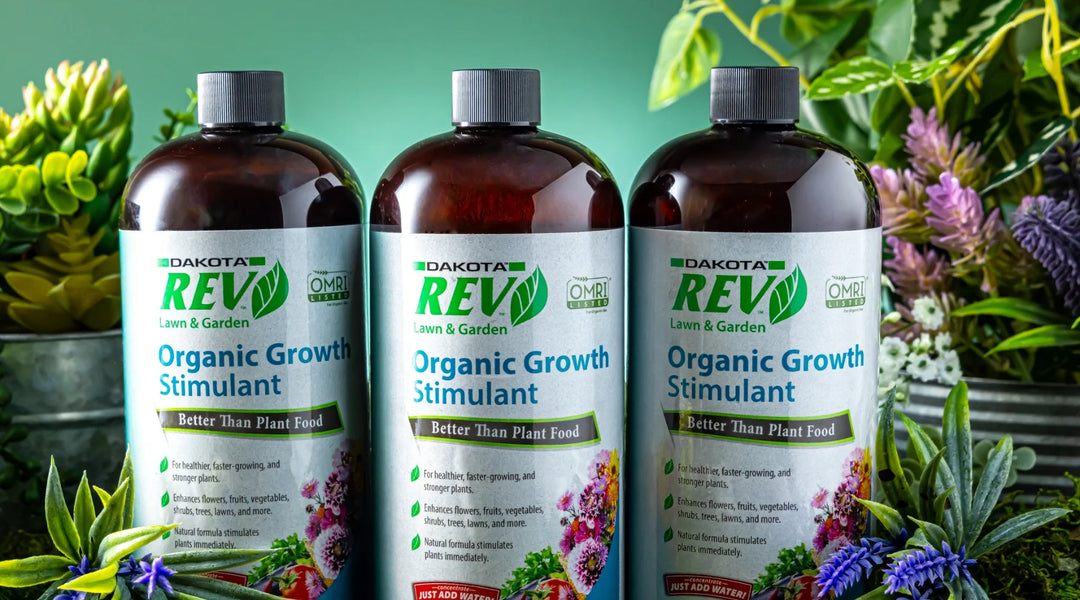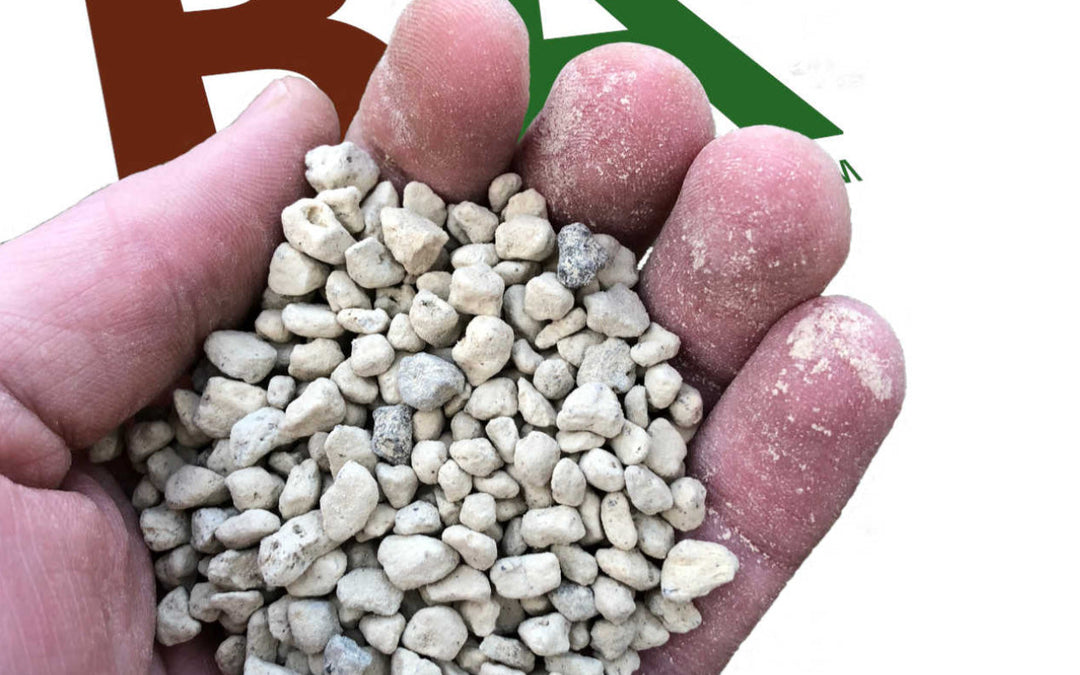Do you know what lives in your soil? | Soil Food Web | RMBA
Do you know what lives in your soil? You might be surprised to find out that the answer is not just worms, bugs and dirt. The microbes living in your garden can have a significant impact on the plants' health and growth. This article will explore the concept of the soil food web, and tools the modern home or market gardener has to exploit soil microbes.
The Relationship Between Soil Microbes and Plant Growth

Beginning in the 1890s, Botanical researchers began debating and conducting experiments on the symbiotic relationship between plants and the microorganisms commonly found in soil. It was well documented as early as 1892 that plants growing in soil inoculated with microorganisms outperformed those grown in sterile soil with added inputs. The shortcomings of the microscopy of the era lead to inconclusive results by scientists looking for bacteria in soil(Schneider, 1892).
What Lead to an Increase in Synthetic Soil Inputs?
During the second half of the 20th century, synthetically derived chemicals were the standard for agricultural inputs. This includes pesticides, herbicides and fertilizer. This was largely driven by a need to feed and clothe an increasing world population, but it was also driven by the increased emphasis on profit through agricultural surplus and trade on the international market. Products like Round up, Miracle Grow, and chemical based insecticides became ubiquitous for both market farmers and home growers. While there are numerous negative impacts on the ecosystem from the production and application of complex, synthetic agricultural inputs, the casual gardener often overlooks the detrimental impact of these inputs on the microorganisms that live in soil.
All About the Soil Microbiome
According to the Frontiers in Bioscience article 'Microbe to Microbiome: A paradigm Shift in the Application of Microorganisms for Sustainable Agriculture' there are often 10 billion microorganisms representing up to 10 million different species found in a single gram of healthy soil (Ray et al, 2020). Given such a high concentration and diversity, these microorganisms are incredibly small, and represent a complex relationship between each other, the plants, and their natural environment: the soil. Soil microorganisms are responsible for breaking down organic matter into its constituent parts, fixing atmospheric nitrogen, and overall making nutrients available to plants. They include fungi, bacteria, protozoans (small single celled organisms), nematodes (small, often microscopic worms), and others. Today we call this ecosystem the soil food web or the microbiome.
Testing Your Soil
But how can the home gardener or small scale farmer test for microbes in soil? Until now, a grower would need to take a soil sample and send it in to laboratory. Most soil tests are performed by university agricultural extensions. They reflect the industrial model of agriculture, looking only at the nutrients available and making amendment recommendations based on a balance of nutrient requirements for the plants. This method completely ignores the needs and benefits of the microbes living within the soil food web. Laboratory soil tests for microbes are expensive, and facilities that can perform such tests are uncommon. Recently, the engineers and scientists at Prolific Earth Sciences developed the revolutionary new product: The Microbiometer soil microbe test kit.
A Microbiometer uses innovative cloud based technology, cutting edge machine learning algorithms, and the camera on your smartphone or tablet. It is really easy to use. The microbiometer soil microbe test accurately measures the amount of microbes less than 100 μm in size in soil. Given that healthy soil can have so many microbes present, it is incredible that this technology is available to the average user. Especially incredible is the fact that it does not take any complicated on site equipment! The test kit includes simple to use components that the average gardener can understand: a small screen, test tubes, a proprietary testing solution, and a simple to use photo background. The test takes only a few minutes to complete, and the results are stored on a secure server, and are accessible online through a smartphone app. Users can track their results over time across a growing year and across different field or garden beds.
How to Improve Your Soil Health
Tests without actionable results are, however, useless. So what can a user of the MicroBiometer Soil Microbe test kit do to improve the microbiology found in the rhizosphere. There are a number of options. First and foremost, the use of harmful chemicals like glyphosate, round up, and the nitrate salts found in many conventional fertilizer products are detrimental to many helpful microorganisms. Discontinuing the use of synthetic herbicides, pesticides, and fertilizers immediately can help microbial populations rebuild. Growers can amend soil to provide better drainage, physical structure, and micronutrients to attract naturally occurring microbes back in the soil food web.
Amendments like Gypsum, Sulfate of Potash, and others are inputs that provide both nutrients and balance the chemical composition of damaged soils to support conditions ideal for microbial propagation. Drainage materials such as perlite, vermiculite, and agricultural pumice help soil promote a water gradient, creating a multitude of micro climates to support populations of various microorganisms. Microbe Manna is a product designed to feed microbes. It contains all of the nutrients that microbial populations need to grow and thrive in healthy, well structured soils.
Lastly, a person can inoculate the soil with products that contain microbes. There are a variety of ways to propagate microbes at home, like making compost teas of various materials to promote different categories of microbes. By far the easiest way to get beneficial microbial populations is by way of prepared microbial inoculants. The Quantum Organic line is perhaps the best on the market. Many products advertised as biological inoculants contain spores from spore forming microbes. Quantum is the only product line available that contains live cultures of beneficial soil microbes in verified quantities.
In conclusion, The microbes in soil are what we call the soil food web. These organisms are essential for plant growth and health, but they can be harmed by conventional fertilizers or pesticides. We use a variety of techniques to test populations today- one that is simple and low cost called Microbiometer soil test kit, which measures total populations of soil microorganisms. This way you know if your microbial population is healthy, so you can maintain healthy soil, rather than add nasty chemicals. To learn more about how these microscopic life forms work together to grow healthy crops, contact us at Rocky Mountain Bio Ag®.
Sources:
Ray Prasun, Lakshmanan Venkatachalam, Labbé Jessy L., Craven Kelly D.
Microbe to Microbiome: A Paradigm Shift in the Application of Microorganisms for Sustainable Agriculture, Frontiers in Microbiology, Volume 11, 2020
A. Schneider; Obserervations on Some American Rhizobia, Bullitein of the Torrey Botanical Club, Jul. 13, 1892, Vol 19, No. 7 (Jul. 13, 1892), pp203-218 Published by: The Torrey Botanical Society










Leave a comment